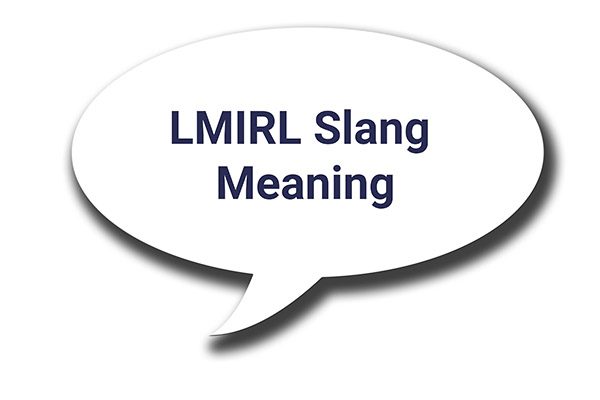
Communicating in the digital realm often involves the use of abbreviations and acronyms. One such Internet slang that has been cropping up more frequently is LMIRL. But what does it mean, and how do parents interpret its usage? Let’s dive deeper into this slang’s meaning, use cases, and how to deal with its occurrence in your child’s online conversations.
Slang's Meaning: What Does LMIRL Stand for?
At its simplest, LMIRL stands for "Let's Meet In Real Life". It's an acronym that a person uses on the Internet to suggest meeting with the other person in an offline setting. The usage of this initialism can be perfectly innocuous, but its connotation can potentially signify danger, warranting the attention and caution of parents.
Use Cases & Examples: Understanding LMIRL in Context
- “We have a lot in common. LMIRL, we’ll have a great time.”
- “You’re open-minded and intelligent for your age. LMIRL, it’ll be fun.”
- “Wow, your talent is amazing. LMIRL, could you teach me sometime?”
- “You look lonely in your photos. LMIRL, you don’t have to be alone.”
The examples could range from seemingly innocent to blatantly manipulative, making it crucial for you, as a parent, to stay vigilant and monitor your child’s online interactions.
Slang Discussion: Talking with Your Child About LMIRL
- “Can we talk about staying safe online? There are some worrying statistics we should be aware of.”
- “Sometimes, people you meet online aren’t who they say they are. Have you experienced anything similar?”
- “Do you know how to protect yourself from potential harms on the internet?”
- “If someone you chat with online suggests meeting up in person, how would you react?”
Open-ended questions can be a start towards understanding your child’s online experiences and providing guidance where needed.